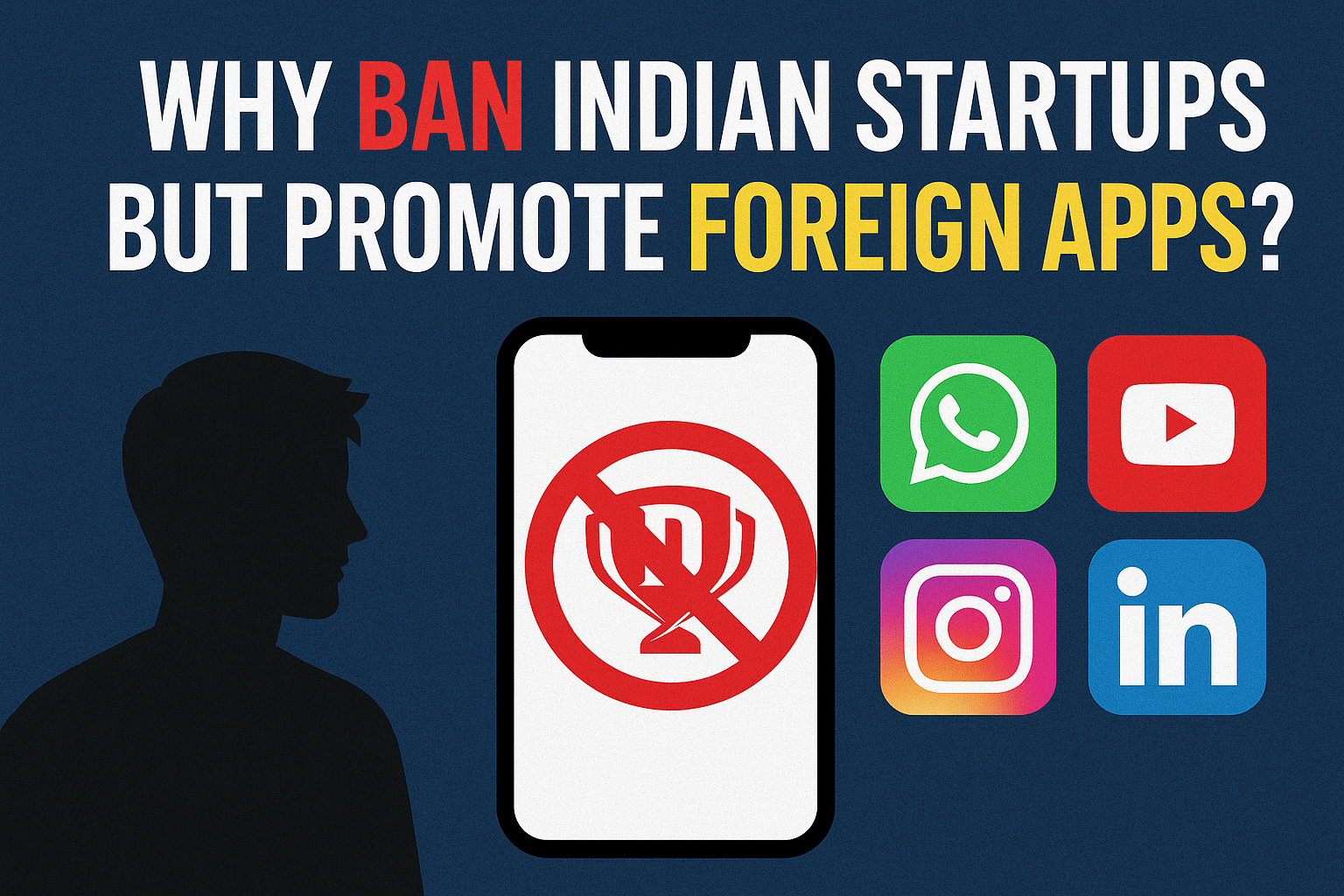Why Social Media Gets Love and Startups Get Bans?

The Indian startup world is facing tough times. Companies like Dream11 and other real-money gaming apps are being banned or restricted, with the government claiming that such moves are necessary to “save the youth” from addiction and financial losses. But this raises a big question—why are other global platforms like WhatsApp, YouTube, Instagram, and LinkedIn not being questioned in the same way?
The Double Standard
If the logic is to protect the youth, then social media platforms should also be under the scanner.
Addiction: Young people spend hours scrolling on Instagram, binge-watching YouTube, or chatting endlessly on WhatsApp. This not only wastes time but also impacts mental health and productivity.
Illegal Activities: From scams, fake news, cyberbullying, to fraud—most of these issues originate or spread through these platforms.
Foreign Profits: These companies are not Indian. The billions they earn from Indian users go to their home countries, while Indian startups that create jobs and keep money within the country are being suffocated.
Why Favor Global Platforms?
The government’s tough stance on gaming startups while ignoring the impact of global tech giants feels like partiality.
Indian startups are seen as risky, while foreign platforms are treated as “untouchable.”
Heavy investments flow into WhatsApp, YouTube, and Instagram from abroad, but Indian startups struggle to raise funds due to regulatory uncertainty.
The youth end up becoming consumers of foreign apps instead of building or supporting Indian alternatives.
What About India’s Future?
If the goal is truly to protect the youth, the same yardstick should be applied to all platforms. Otherwise, it looks like foreign companies get free rein while Indian startups get punished.
- not regulate usage instead of outright banning?
- Why not promote digital literacy instead of blocking innovation?
- Why not support homegrown platforms that can compete globally?
The government’s message seems confusing. On one hand, it says it wants to protect the youth by banning Indian gaming startups. On the other, it allows foreign-owned social media platforms—where much bigger issues of time-wasting and illegal activity exist—to dominate India.
If India wants to truly build a self-reliant digital economy, then fairness is key. Protecting youth should not mean killing Indian startups while promoting foreign giants.








